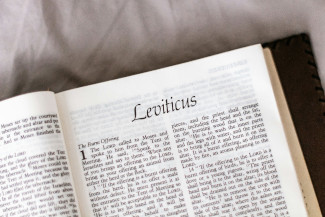The Book of Leviticus
The Book of Leviticus is often seen as one of the most challenging books in the Bible to understand. Filled with detailed laws and rituals, it can be easy to feel overwhelmed when trying to navigate its pages. However, with the right guidance and a deeper understanding of its context and significance, the Book of Leviticus can reveal profound insights into ancient Israelite culture, religious practices, and spiritual beliefs.

What is the Book of Leviticus?
The Book of Leviticus is the third book of the Torah, the central religious text of Judaism. It is also considered part of the Pentateuch, which includes the first five books of the Old Testament in the Christian Bible. Leviticus gets its name from the Levites, the priestly tribe of ancient Israel responsible for carrying out religious ceremonies and maintaining the Tabernacle, a portable sanctuary where sacrifice and worship took place.
Why is the Book of Leviticus Important?
Many people struggle to find relevance in the Book of Leviticus in modern times, as its laws and regulations can seem outdated and unfamiliar. However, understanding the historical and cultural context in which Leviticus was written can help illuminate its significance. The book provides a blueprint for the Israelites on how to live in accordance with God’s will, maintain purity, and seek forgiveness for sins through sacrifice and atonement.
Key Themes and Concepts in Leviticus
Holiness and Purity: Leviticus emphasizes the importance of holiness and purity in the life of the Israelites. Laws regarding cleanliness, dietary restrictions, and moral conduct are meant to set God’s chosen people apart from other nations.
Sacrifice and Atonement: The sacrificial system outlined in Leviticus serves as a way for the Israelites to seek forgiveness for their sins and restore their relationship with God. The rituals of sacrifice and atonement are seen as a means of cleansing impurity and renewing spiritual connection.
The Priesthood: Leviticus details the duties and responsibilities of the Levitical priesthood in overseeing religious ceremonies, offering sacrifices, and mediating between the people and God. The priests play a central role in upholding the covenant between God and the Israelites.
Moral and Ethical Guidelines: Alongside ritual and ceremonial laws, Leviticus also contains ethical and moral teachings aimed at guiding the behavior of the Israelite community. Principles of justice, compassion, and integrity are woven throughout the text.
Practical Applications of Leviticus Today
While the laws and rituals of Leviticus may no longer be directly applicable in modern times, the underlying principles of holiness, sacrifice, and moral conduct can still have relevance for people of faith today. By exploring the deeper meanings behind the text and reflecting on its themes, individuals can gain insight into their own spiritual journey and relationship with the divine.
The Book of Leviticus may be challenging to understand at first glance, but with patience and an open mind, its profound wisdom and timeless truths can come to light. By delving into its pages with a spirit of curiosity and reverence, readers can uncover a rich tapestry of religious tradition, moral guidance, and spiritual insight that continues to resonate across generations. As we engage with the text of Leviticus, may we be inspired to seek holiness, embrace sacrifice, and uphold the values of justice and compassion in our own lives.

